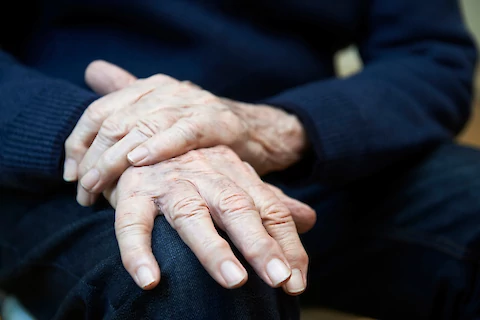
Parkinson's disease is a progressive neurological condition that affects movement and can significantly impact a senior's quality of life. Recognizing the early signs of Parkinson's disease in seniors is crucial, as timely diagnosis and treatment can help manage symptoms and maintain independence for as long as possible.
Courtesy of Senior Helpers Tri-Cities and SE Washington, here are some common early symptoms of Parkinson's disease, and some insight into how they might affect seniors' daily tasks. Keep in mind that experiencing one or more of these symptoms doesn't necessarily mean you have Parkinson's. However, it's always best to consult with a healthcare professional for an accurate assessment.
Difficulty Holding Objects
One of the most recognizable early signs of Parkinson's disease in seniors is tremors or involuntary shaking. This can make it challenging to hold objects steadily, leading to difficulties with tasks that require fine motor skills, such as writing or buttoning clothes. If you've noticed a persistent shaking in your hands or fingers, immediately discuss these changes with your doctor.
Trouble Getting Out of Bed
Stiffness and rigidity are also common in Parkinson's. Seniors might find it harder to get out of bed, rise from a chair, or comfortably move around. Tasks requiring flexibility, like reaching for items, bending down, or even turning your head, may also become more difficult. Pay attention to any changes in your ease of movement and discuss them with your healthcare provider.
Slowness of Movement
Also known as bradykinesia, slow movement is another early sign of Parkinson's. You may take longer to complete everyday tasks, such as getting dressed, preparing meals, or simply walking from one room to another. This slowness can be frustrating and may make you feel like your daily routine has become more cumbersome than it used to be.
Navigating In and Out of a Car
This might manifest as an increased risk of falls, making it harder to climb stairs or get in and out of a car. Any changes in your balance or stability should be taken seriously and reported to your doctor. Doctors can help determine the best course of action to keep you safe.
Communicating With Others
You might find it difficult to communicate with others or struggle to express your emotions through facial expressions. This can be isolating and challenging to cope with. It's essential to discuss these changes with your healthcare team and seek support from loved ones.
Trouble Planning Daily Activities
You may experience trouble with memory and concentration or find it difficult to plan and organize daily activities. While these changes can be frustrating, it's essential to recognize them as potential symptoms and seek professional help when necessary.
We're Here to Help
If you or a loved one are experiencing any of these symptoms, consult with a healthcare professional right away. For those living in Kennewick, Walla Walla, Richland, Pasco, and Clarkston, Senior Helpers Tri-Cities and SE Washington is here to support you and your family in maintaining your independence and quality of life.
Contact us today to learn more about services tailored to your unique needs, from drop-in companionship to assistance with day-to-day self-care and household tasks.